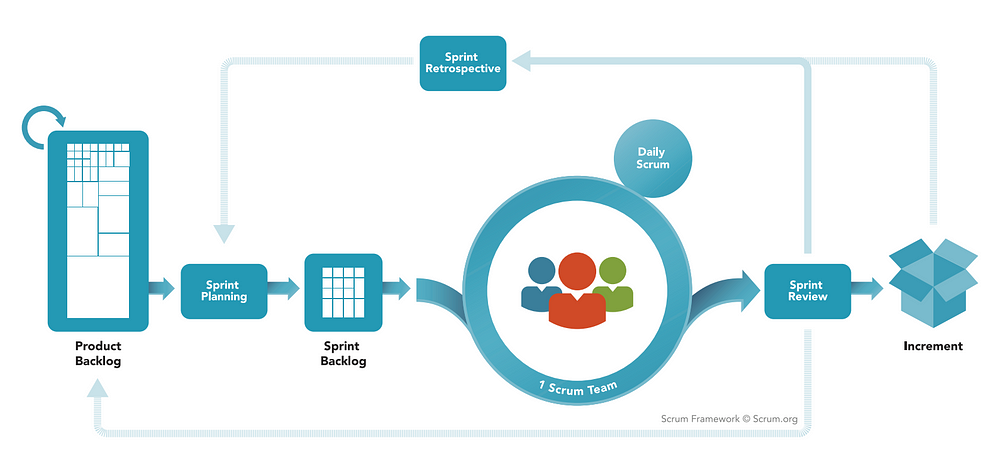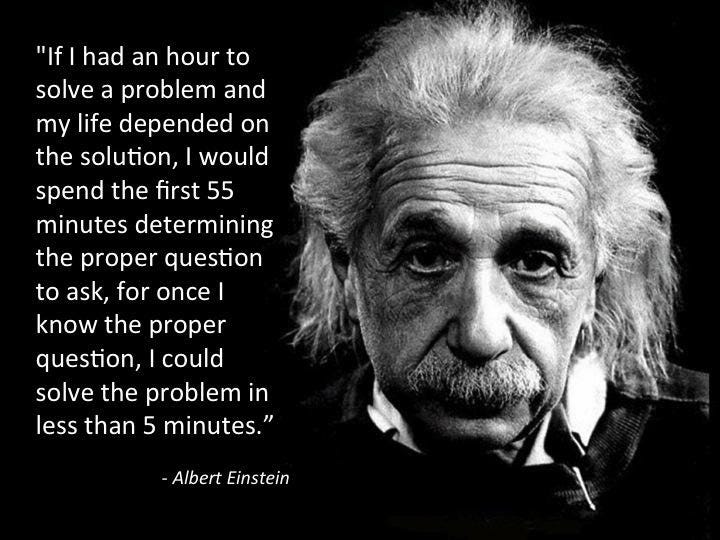Sprint Retrospective is the last Scrum event within a Sprint. During this event entire Scrum Team- Scrum Master, Product Owner & Development Team inspects the Sprint and decides how to improve the next Sprint.
Each Sprint retrospective is a chance for the Scrum team to reaffirm its commitment to continuous improvement- Ryan Ripley & Todd Miller: Fixing your Scrum.
As a Scrum Master, I have learned how important it is to ask ‘powerful questions’ that lead to actionable improvement items. Powerful questions help the team to identify solutions and explore other various possibilities.
 Source: Scrum.org
Source: Scrum.org
What Are Powerful Questions
Asking powerful questions is a great coaching technique. These questions open the door to dialogue & discovery.
These are provocative queries that put a halt to confusion and evasion. These are generally open-ended questions that create possibility for expanded learning and fresh perspective. — Co-Active Coaching Toolkit.
Source: https://www.virtualplex.com/2018/12/03/problem-solving-einstein/
Key Benefits
- Thought-Provoking
- Generate curiosity in the listener
- Stimulate reflective conversation
- Inspire more questions
- Help surface underlying assumptions
Application During Sprint Retrospectives
During the Sprint Retrospective, generally, Scrum Team discusses issues/successes they faced during the Sprint or reflects upon feedback received during Sprint Review.
This discussion leads to some suggestions/ideas, some ranting, actions, etc. For example,
- ‘we need to do something about these emergency requests’,
- ‘testing is letting us down, we cant finish work within a sprint’
- ‘our user stories are too big’
- ‘we are always dependent on team X’
Powerful questions really help the team to think critically and take the above discussions to the next level where teams can convert them into actionable items.
Some of the questions that I really found useful:
- Whose knowledge, influence & support do we need? This helps in brainstorming future dependencies. Identification of these beforehand helps in managing these dependencies better.
- What will happen if we don’t tackle this issue/impediment now? This helps in making the impact transparent to everyone. See one example below from a recent retrospective I attended:
Development Team: We think we should invest some time in improving our code. There is a lot of bad code which we have written in initial Sprints.
Product Owner: I am not interested in talking about that. I don’t see value in it. I think it is nice to have. Let’s discuss how we can deliver value faster.
Me: What will happen if we don’t tackle this bad code issue now?
Development Team: It may slow us down as it will take more time to identify & fix issues. It can also result in bugs. All this may have possible implications on our productivity and ability to deliver value.
Product Owner: Hmmmmm. Let’s talk about that.
- What goals are we trying to achieve? Such questions help in building suggestions to the bigger picture, for example, Product Vision, Value, etc.
- How will we know if we are getting better or improving the situation? Such questions help in the identification of measures that will help in the team’s self-management.
- What limits our options? It helps the team in critically thinking about other possibilities. This could be followed up by ‘Are they really constraints or our assumption?’
Powerful Questions are invitations to creativity & critical thinking
- If I was in your shoes, what advice would you give me? Such questions help the person/team identify their own solutions. This is more powerful than you solving their problem.
- What is holding you back from starting? This helps teams identify some quick wins and alternative routes. It is like putting the team/individual out of their comfort and create a room for exploring new ideas.
Endnote
- Powerful questions are not rocket science. These are common sense. However, it requires sometimes the courage to ask these.
- These put individuals/teams out of their comfort zone.
- Though Sprint Retrospective is not the only event when these should be asked but naturally, it provides the best opportunity.
- In my opinion, this is a must-have in a Scrum Master toolbox kit.
I hope you have enjoyed the article. Please also provide me some feedback and share your experience where ‘powerful questions’ have helped you.

